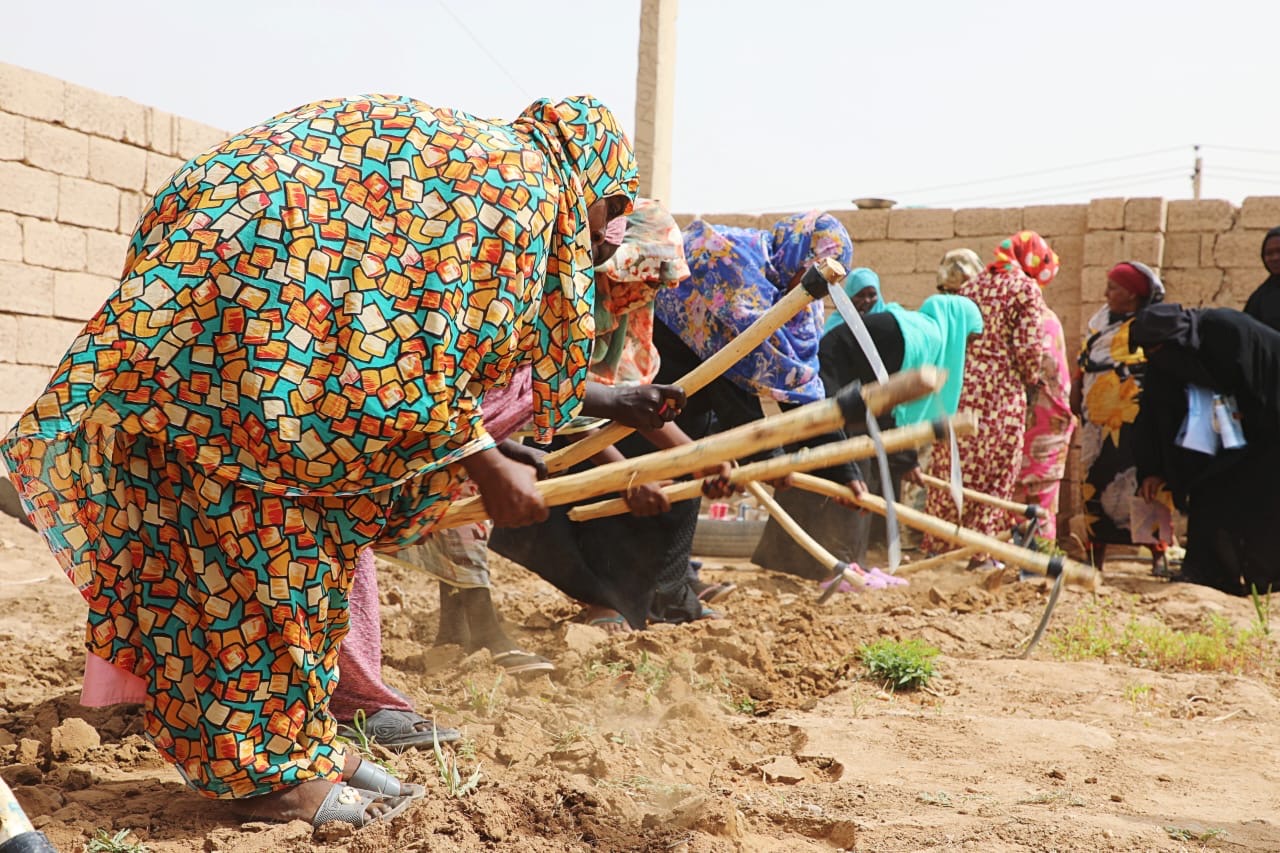
Halima Yasin, a 19-year-old secondary student hosted in River Nile state
As the war enters its second year in Sudan, the country is grappling with one of the most severe hunger crises in recent history. According to the latest Integrated Food Security Phase Classification (IPC) analysis, 750,000 people are facing catastrophic levels of food insecurity, and 25.6 million people are in crisis levels of hunger, while 14 areas in the country are at risk of full-blown famine – a first for the country. Sudan’s food insecurity crisis underscores the urgent need for integrated responses that not only help confront a catastrophic famine but ones that will lay the foundation for future recovery and development. From restoring and creating new avenues of livelihoods to opening access to basic services to laying the foundation for economic opportunities that can uplift businesses and communities into the future, there is much to be done to secure the country’s future development.
For internally displaced persons (IDPs) in particular, the severity of the situation is more than evident. Over 97% of the country’s total IDP population was hosted in localities featuring high levels of acute food insecurity or worse, according to the International Organization for Migration (IOM).
Halima Yasin is a 19-year-old secondary school student displaced from Khartoum to River Nile State and is one of the roughly 770,000 internally displaced persons (IDPs) hosted in the state.
Implemented through GIZ and financed by the German Federal Ministry of Economic Cooperation and Development (BMZ), UNDP recently kicked off a series of trainings to strengthen the resilience of women in agriculture—from individual farmers to those leading micro and small enterprises (MSMEs)—who are affected by the conflict. These trainings come as part of a wider project aimed at enhancing women’s local economic recovery around Sudan.
In River Nile, 900 women IDPs attended a recent training that expanded into home gardens and good agricultural practices. Support provided also included the distribution of comprehensive packages, including garden tools, seedlings, organic fertilizers, seeds, and a simple production manual. For many, it wasn’t simply a chance to revive their sources of livelihood but a chance to restore their sense of dignity and agency once more.
One of the attendees was Halim, who was thrilled by the knowledge she gained. She particularly appreciated the practical workshop on soil preparation, organic fertilizer, and improved certified seeds.
She is only one of many students who not only bear the brunt of the war on their disrupted education but are forced to face the consequences of what it means to have a life uprooted, which often includes learning new ways of not only surviving but new ways to provide a living for themselves and their families.
“Although I had previous knowledge of training in agriculture, it is highly beneficial; it is more hands-on. I am ready to establish a home garden, enjoy fresh vegetables, and possibly sell some,” Halima said.

The project that is supported through GIZ, financed by the German Federal Ministry of Economic Cooperation and Development (BMZ) and implemented by UNDP will launch an information and communication technology (ICT) platform to provide extension services to beneficiaries.
Additionally, the project has established six demonstration plots, exemplifying how low external inputs, certified seeds, and adherence to Good Agronomic Practices (GAPs) can synergistically enhance crop yields. These demonstration plots will equip the beneficiaries with practical experiences to apply to their home gardens and, hopefully, in the not-too-distant future, their communities and beyond.

 Locations
Locations



